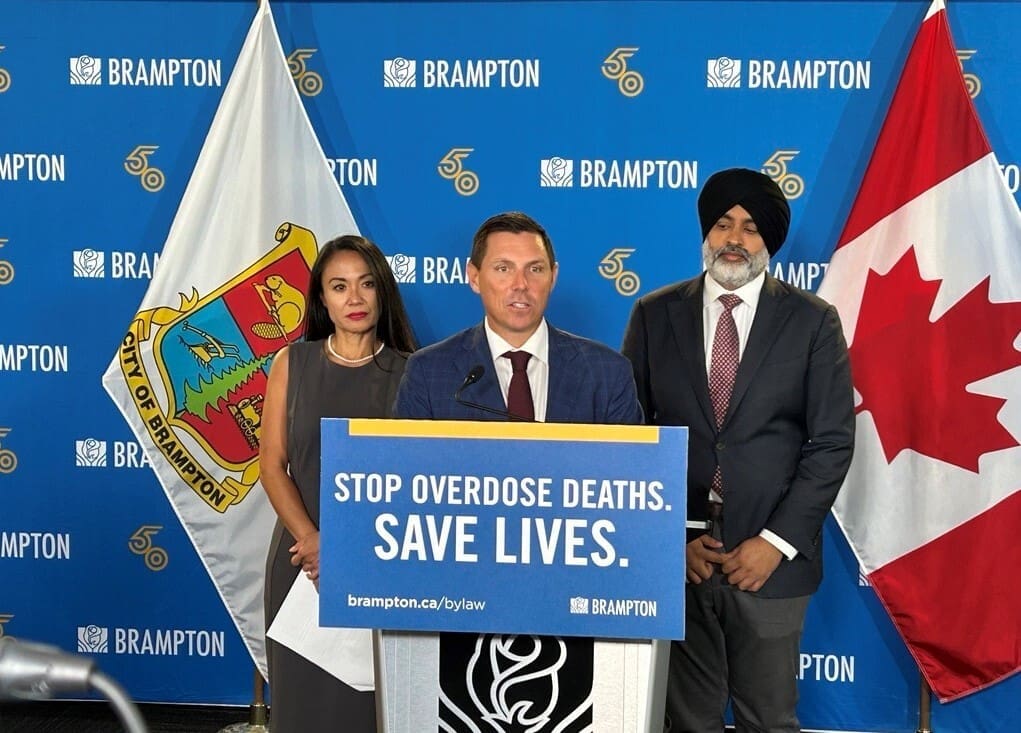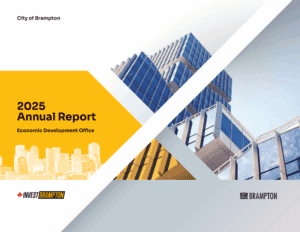Today, at a press conference hosted by Mayor Patrick Brown, the City of Brampton announced it is calling on the Province of Ontario to implement a pilot project in Peel Region offering a compassionate and necessary solution to support individuals suffering from severe addictions, concurrent mental health disorders and brain injuries. The City urges the provincial government to introduce compassionate intervention programs for individuals unable to seek care due to the severity of their conditions, connecting them with the essential services they require.
“Every day, we see the devastating impact that untreated mental health and addiction issues have on our community. Brampton is not only struggling to keep up with the growing demand for support services, but we are also seeing an alarming rise in homelessness and encampments as a direct result. These encampments are often home to individuals battling severe addictions and mental health challenges, and they highlight the urgent need for more comprehensive interventions. Compassionate intervention programs reduce harm, promote recovery and help create a healthier, more resilient Brampton where everyone has the opportunity to rebuild their lives with dignity.”
– Rowena Santos, Regional Councillor, Wards 1 & 5; Chair, Community Services, City of Brampton
Special Meeting Oct 09, 2024
Mayor Patrick Brown, Deputy Mayor Harkirat Singh and Regional Councillor Rowena Santos urge the provincial government to implement compassionate intervention programs
Compassionate intervention programs empower first responders to place a person in a psychiatric facility if a doctor deems it necessary for their health and safety, as well as the safety of others. This approach ensures individuals with severe mental health, addictions and acquired brain injuries are connected to the care and services they desperately need while balancing dignity and community safety. Adopting compassionate intervention measures can help ease the burden on emergency services, enhance community safety and provide the necessary support for individuals in critical need.
Peel has been faced with the significant impact of mental health and addiction issues, which are closely linked to the housing crisis and the growing prevalence of homelessness and encampments the community is experiencing. Since 2010, visits to Brampton’s Mental Health and Addictions Emergency Department and Urgent Care have surged by an alarming 121 per cent compared to a provincial average increase of 54 per cent.
Peel Regional Police Mental Health and Addiction Crisis Calls
From January 2020 to June 2024, Peel Regional Police received 33,891 calls related to mental health and/or addiction crisis, which increased by 25 per cent between 2020-2023. There were approximately 12,000 apprehensions of 8,000 individuals from 2022 to June 2024, nearly 14 per day. 1,754 individuals were apprehended more than once, and 57 more than 10 times. These instances equate to 12,830 officer shifts and more than $12 million in officer time. Over the same period, there were 1,851 police-attended overdoses, of which 328 were fatal. Many individuals who were subject to fatal overdoses often had many prior overdose occurrences, which highlights the importance of intensive treatment and early intervention.
Peel Public Health Opioid Mortality and Morbidity Rate
Peel region is facing a drug toxicity crisis with 705 lives lost in the last five years. In 2023, Peel experienced 573 opioid-related emergency department visits and sadly 147 opioid-related deaths. So far, 34 deaths have been reported in 2024. Fentanyl was a key contributor in 9 of 10 of these deaths in 2022 and 2023.
The City of Brampton continues to advocate for the federal and provincial governments to act in addressing mental health, addiction and homelessness in Brampton and throughout Peel Region. Brampton is committed to building a community where no one is left behind, and introducing compassionate intervention programs for mental health and addictions is a crucial step toward achieving that goal. By collaborating with local mental health and addiction services and Peel Region’s Housing Services team and learning from actions taken in other provinces such as British Columbia, Brampton can help create more effective, community-focused interventions for Peel residents.
Media Contact:
Vanessa Pallares – O: (905)-875-2605 Ext.- 874, Email: vanessa.pallares@brampton.ca














